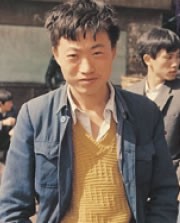Subei in China

Photo Source:
Copyrighted © 2026
Operation China, Asia Harvest All rights reserved. Used with permission |
Send Joshua Project a map of this people group.
|
| People Name: | Subei |
| Country: | China |
| 10/40 Window: | Yes |
| Population: | 2,991,000 |
| World Population: | 2,991,000 |
| Primary Language: | Chinese, Mandarin |
| Primary Religion: | Non-Religious |
| Christian Adherents: | 6.50 % |
| Evangelicals: | 6.00 % |
| Scripture: | Complete Bible |
| Ministry Resources: | Yes |
| Jesus Film: | Yes |
| Audio Recordings: | Yes |
| People Cluster: | Chinese |
| Affinity Bloc: | East Asian Peoples |
| Progress Level: |
|
Introduction / History
Although they are part of the Han Chinese nationality, the Subei - who are also called Jiangbei - have a distinct identity. The Subei are immigrants who came from northern (bei) Jiangsu (su). The Subei "are socially looked down upon and economically and educationally disadvantaged. ... The term 'Subei swine' is an extreme insult in the Shanghai dialect. The government recognizes them as Han, but they claim separate ethnicity and exhibit group solidarity. ... If you ask any one from Shanghai who they are, they'll probably know exactly who you're talking about and be willing to spread a whole lot of slander about how dirty and stupid these people are. The only reason they're dirty is because they're poor, and they're poor because they are uneducated and they are uneducated because they are discriminated against." Zhou Enlai, the Communist leader, was a Subei from Huai'an County.
Refugees from northern Jiangsu migrated into Shanghai in large numbers after floods in 1911 and 1921. The worst flood took place in 1931, resulting in 78,045 Subei people coming to Shanghai. Their numbers continued to grow. In 1946, nearly 59,000 Subei natives registered with the Committee for the Salvation of Subei Refugees.
What Are Their Lives Like?
To outsiders today, the Subei are largely indistinguishable from the other Chinese around them. Until recently, Subei women wore "red and green silk clothes, embroidered shoes, pink or red stockings, and other brightly colored clothes." Even today, Shanghai women shun red cloth and often say to women wearing red, "You Subei person - that's ugly!" A 1986 study showed that 80% of Subei marry spouses of Subei origins.
The Subei have a reputation for working in Shanghai's lowest and filthiest jobs, such as bathhouse attendants, barbers, and pig farmers. A 1958 study found 77% of the pedi-cab drivers in Shanghai were Subei people.
What Are Their Beliefs?
There are a few traces of Chinese traditional religious beliefs remaining among elderly Subei people, but most Subei under the age of 50 are atheists.
There are a significant number of Subei Christians in Shanghai. This city, which was the traditional port of arrival for missionaries, has received more gospel witness than most other parts of China.
What Are Their Needs?
There needs to be a gospel witness for the Subeis outside of Shanghai. Perhaps Subei Christian believers from that mega-city can go to those in rural parts of China.
Prayer Points
Pray for a Book of Acts type of church growth for the Subeis.
Pray for the Holy Spirit to bless every Subei family.
Pray that soon Subei disciples will be making more disciples.